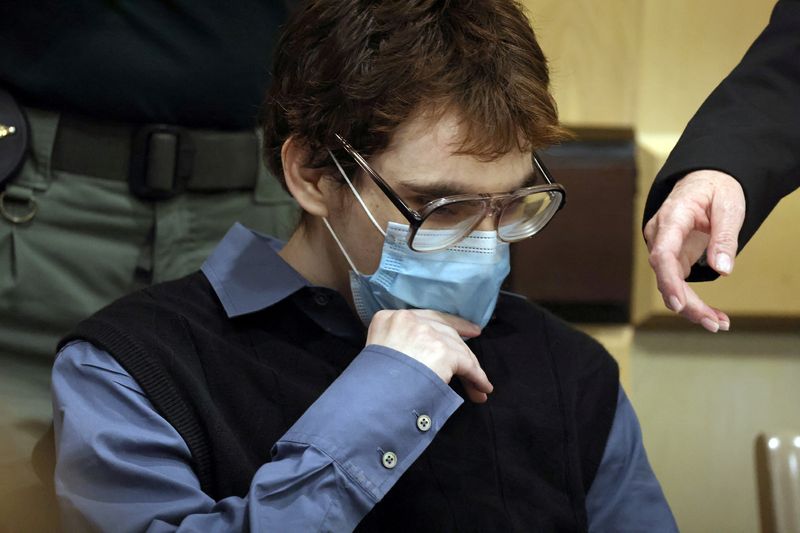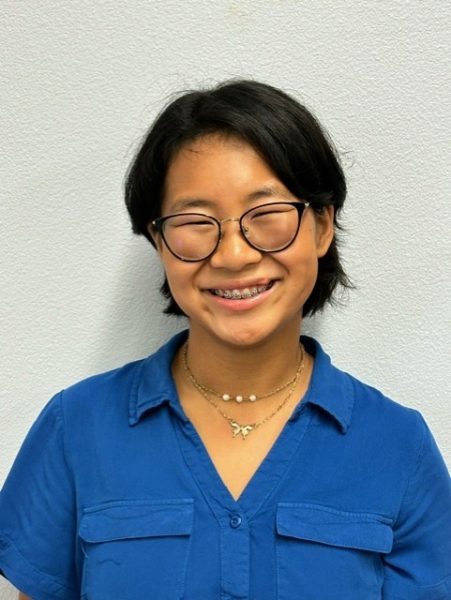Potential Death Penalty to Nikolas Cruz
Nikolas Cruz is facing the death penalty.
April 8, 2022
On February 14th, 2018, Nikolas Cruz was 19-years-old when he unleashed one of the deadliest mass shootings in U.S history at Marjory Stoneman Douglas High School in Parkland, Florida. Cruz was charged with 17 counts of premeditated murder, of which 14 were students and 3 were faculty members.
His victims include Alyssa Alhadeff, 14; Martin Duque Anguiano, 14; Nicholas Dworet, 17; Jaime Guttenberg, 14; Luke Hoyer, 15; Cara Loughran, 14; Gina Montalto, 14; Joaquin Oliver, 17; Alaina Petty, 14; Meadow Pollack, 18; Helena Ramsay, 17; Alex Schachter, 14; Carmen Schentrup, 16; and Peter Wang, 14. Geography teacher Scott Beigel, 35; wrestling coach Chris Hixon, 49; and assistant football coach Aaron Feis, 37, were also killed, each while running toward danger or trying to help students to safety.
Cruz, now 23-years-old, is facing the penalty phase trial where a decided panel will determine whether or not he gets the death penalty. This proceeding comes more than four years after the massacre. Death penalty trials in Florida and in most parts of the country often take two years to start because of their complexity, but Cruz’s was delayed further by the COVID-19 pandemic and extensive legal wrangling.
The jury selection for that panel started on April 4th, 2022, but it is expected to take several weeks to seat the jury. Legal experts have said that this phase of the trial could last several months. According to Judge Elizabeth Scherer, at least 20 total jurors will be picked so that there are plenty of alternates throughout the trial. The final panel will comprise of 12 jurors plus 8 alternates. 1,500 potential jurors are going to be screened throughout the process by both the prosecutors and defense attorneys.
Jurors would have to agree unanimously that at least one aggravating factor (including the capital felony charges to which Cruz pleaded guilty, or whether he knowingly created the risk of other deaths) exists among the 34 charges to then begin to discuss whether he should face the death penalty. If that happens, they must be unanimous in recommending a death sentence, otherwise his sentence would be life in prison. If they do recommend the death sentence, the judge still has final say.
Previously, Cruz had pleaded not guilty to the 17 counts of first-degree premeditated murder and 17 counts of first-degree attempted murder, though he had confessed to police, according to a probable cause affidavit. The change of plea to guilty was previewed on Friday when Cruz appeared briefly in Broward County court to plead guilty to charges related to a November 2018 jail assault. He had been sentenced to 25 years in prison for said assault. Appearing in court, he addressed the judge and the families of those he killed and injured.
“I am very sorry for what I did and I have to live with it every day,” Cruz stated. “And if I would get a second chance, I would do everything in my power to try to help others.” Families of the victims had rejected the apology, calling it “irrelevant” and “ridiculous.”
“The prosecutor is going to argue that this was a totally evil, unnecessary and horrible act,” says Stephen Harper, a public defender and expert on death penalty cases in Florida. He says that with so many people killed and injured, this is an extremely difficult case for the defense. “The defense is going to argue that their client was seriously mentally ill.”
Phil Reizenstein who is a defense attorney and former prosecutor who has had numerous death penalty cases, says premeditated nature of the mass shooting will be hard for the defense to overcome. The jury will see videos recorded by students of some of their classmates’ last moments. Reizenstein says that they will hear eyewitness testimony of teachers and students who survived. “They’re going to get on the stand and they’re going to tell jurors what they felt,” Reizenstein says, “their fear and their horror at seeing their friends murdered. That is going to be just bombshell testimony for the prosecution.”


